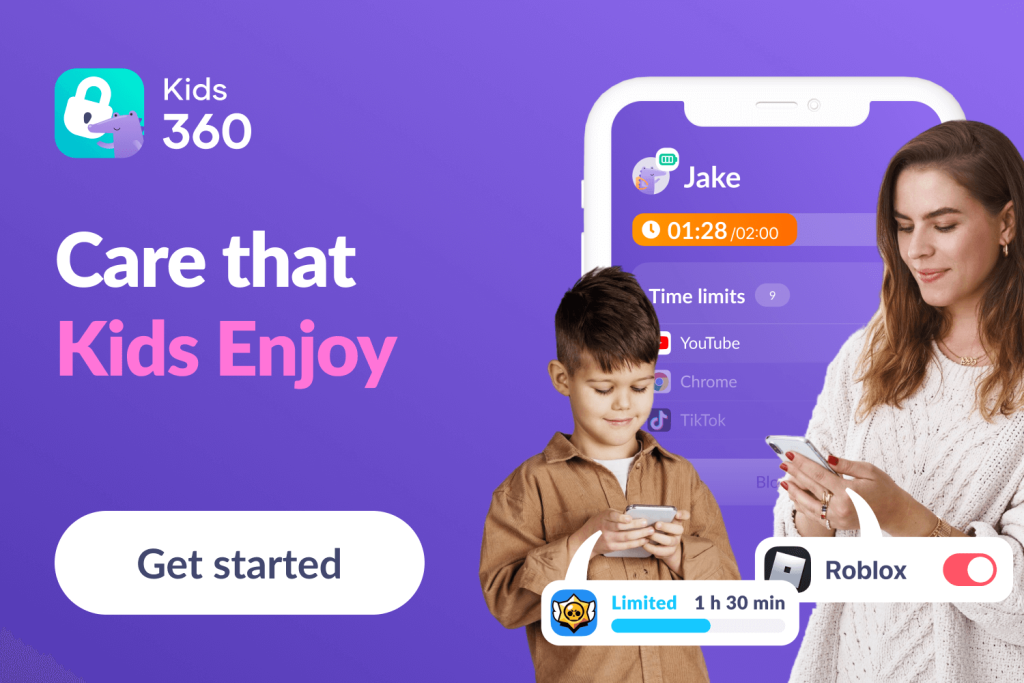Teen Life Skills: How to Prepare Your Child for Independence

It might seem like only yesterday that our little ones were taking their very first step, or heading off for their first day of school, but we have to face the fact that our child’s now a teenager and soon to embark on their adult life. It’s time to start thinking about life skills for teens and how we can best prepare our kids for the next stage of their journey. From learning about healthy relationships to problem-solving, financial management, budgeting, and critical thinking, we’ll outline how to teach life skills to teens below.
Contents:
- The Benefits of Life Skills for Teens
- Categories of Essential Life Skills
- How to Teach Life Skills Effectively
- FAQs
The Benefits of Life Skills for Teens
Life skills for teens are those that’ll help them navigate their adult life. They include personal and emotional skills, such as resilience, time management, self-awareness, and stress management, and social skills like communication, conflict resolution, and empathy. It’s also important to teach teenagers practical daily skills and safety skills, including cooking, budgeting, doing the laundry, and maintaining personal hygiene, to prepare them for, perhaps, college and a subsequent career.
Financial literacy is one of the skills every teen should learn, which means understanding income, outgoings, spending, and saving, and the basics of credit scores and checks, banking, loans, and credit cards. And don’t forget digital and online safety skills, vital to guard against scammers and predators, and keep personal information safe.
Essential life skills for teenagers are about getting teens ready for the wider world, preparing them for college and independent living, and giving them the tools they need to succeed socially and in the workplace. Boosting your teen’s confidence and helping them get better at, for example, critical thinking can translate into great leadership skills in later life.
Today, teens face more challenges than ever before, bombarded by online messaging and pressures, and the need to navigate complex work and living environments. Teaching teenagers the life skills they need is one of the best ways to help them manage their future finances, keep them safe online, improve their decision-making and goal-setting skills, and even safeguard their mental health.
Categories of Essential Life Skills
Personal and Emotional Life Skills

Alina Rosanova/Shutterstock
First up, personal and emotional life skills, including self-awareness, resilience, and time management. These form the foundation for forming healthy relationships and developing social skills and emotional intelligence, and help with emotional regulation and stress management. As well as helping prevent your teen from engaging in risky behaviors, building strong personal and emotional skills is great for managing emotional response and processing both negative and positive emotions.
Self-awareness is the ability to understand one’s thoughts, emotions, and behavior—and how they affect others. It helps teens recognize what triggers stress, frustration, or sadness and respond thoughtfully rather than impulsively. Developing this skill can include talking about daily experiences and naming feelings: “I felt frustrated because…” or “I felt proud when…”. Keeping a journal or sharing your own reflections as a parent can also show how to notice and process emotions.
Resilience and time management skills are important to prepare for adulthood and a future work life. Resilience is the ability to recover, adapt, and thrive in the face of challenges and boosts our ability to navigate difficult situations while maintaining our emotional, physical, and mental well-being. Developing this can help build your teen’s self-confidence, problem-solving skills, and emotional regulation, empowering them to grow from setbacks rather than being defeated by them.
Here are some tips to develop their resilience:
- Encourage your teenager to try a new activity, sport, or club.
- Teach them to be aware of self-talk and how to silence the “inner critic.”
- Help your teen focus on the positive aspects of a challenging experience or change.
- When faced with a problem, suggest that your teen devise a variety of solutions and weigh up the pros and cons of each.
- Teach your teen techniques to help them manage stress and regulate their emotions, such as mindfulness or breathing techniques.
- Model resilience yourself and share your own experiences of challenges you’ve overcome and lessons you’ve learned as a result.
When it comes to time management, this can help with everything from effective exam revision to, later, ensuring work tasks are completed on time. Getting started teaching this life skill is easy. Consider introducing planners (whether digital or paper-based), calendars, or using time management apps to help your teen begin managing their homework, chores, and more. You could also show your teen how to break up big tasks into manageable blocks, and suggest focusing on one task at a time rather than taking a scattergun approach.
Helping your teen get physically organized can make a big difference. This could mean devising a system for homework, or ensuring their desk is tidied after each study session, for example.
Social and Communication Skills
Some of the most important teen life skills to teach your kid are those related to social interactions and communication. These include, for example, building empathy, conflict resolution, and teamwork skills. Developing these skills during adolescence is important to help teens establish positive, healthy relationships with peers, bolster self-esteem, and handle conflict.
Key social skills entail social awareness, helping your teen become better aware and sensitive to others’ feelings and circumstances, and relationship building, enabling teens to establish and nurture connections with peers and others. Help your teen develop these vital skills by teaching them how to actively listen (which requires attentiveness and empathy) and manage their emotions when interacting with other people.
A further key skill in this category is stress management. This can help teens not to overact (or underact) when engaging with others and puts a focus on presence of mind, composure, and self-belief.
Here are some examples of key communication skills your kid needs. Does your teen have the ability to:
- Make appropriate requests — can they ask for things appropriately from family members and friends, ask for assistance or information if they need help, or request something?
- Initiate conversations — can they strike up a conversation with family members or friends, recognize when it’s a good time to talk and when it’s less so, know topics that are often good conversation starters, and be able to talk about a variety of subjects?
- Interrupt appropriately — rather than barging into conversations. Do they know good ways of stepping in when they need to interrupt?
- Actively listen — this type of listening displays genuine care and attention to the other person and what they’re saying, rather than when we’re simply waiting for our turn to speak.
- Politely refuse — can they politely refuse, even when confronted with peer pressure, and say “no” without being negative?
- Recognize non-verbal cues such as facial expressions and body language — these things can help avoid misunderstandings, and help your teen appear more confident.
- Understand and relate to others’ feelings — this skill enables teens to better resolve conflicts, connect with others faster, and boost compassion.
- Adjust their conversations to different situations and people — to give your teen the flexibility to converse appropriately in a range of settings. This can mean switching between different styles (such as formal and informal), being aware of others’ preferences regarding tone and pace, and adapting to new group settings.
- Receive constructive feedback — taking on board feedback with good grace can be difficult for adults, but it’s a vital skill for teens to learn. Teach your kid to listen calmly before responding to constructive feedback, and to remember that the advice being given is an opportunity to grow.
- Resolve conflict with respect — to do this, it’s usually best to pinpoint the issue, share perspectives respectfully, talk about a variety of possible solutions, and agree on a plan together. If needed, this plan can be reflected on and adjusted going forward.
Goal-Setting and Decision-Making Skills
These skills are easy to overlook, but teaching your teen to set and work towards goals and make better decisions is important. Suggest your kid write down their aspirations and goals. If it’s a big goal, show them how to break it down into manageable steps. For example, if the goal is to become a professional photographer, the first step could be looking for the nearest college that offers photography courses, joining a photography club, or entering a photo they’ve taken into a competition.
When it comes to decision-making, talk to your teen about how peer pressure can push us to make decisions we otherwise wouldn’t. Understanding this can help avoid it. Teaching kids to set boundaries and say “no” to something they don’t want to do is key. Suggest they always assess the pros and cons of the decisions they’re faced with, and how to assign weight to each point. Here are some more tips to help develop your teen’s decision-making skills:
- Teach your teen the decision-making process. It comprised the following steps: identifying the choice to be made, gathering information, considering possible alternatives, looking at the pros and cons, making a choice, and, finally, reflecting on the outcome.
- Use real-world situations as learning opportunities. Involve teens in everyday decision-making, for example, the assignment of chores, what to do on the weekend, or what to include in the grocery shop.
- Encourage critical thinking, which involves asking open-ended questions and not taking everything at face value. Suggest your teen considers multiple perspectives when faced with a decision and explores a variety of outcomes, rather than jumping to a single conclusion or starting from a point that involves presupposition.
- Allow kids to experience consequences that come about as a result of their decisions. If it’s appropriate and safe, allow kids to make a decision even if there’s a risk (or even likelihood) that they’ll make the wrong choice. For example, allow them to decide whether to finish their homework before meeting up with a friend or after. If the homework doesn’t get finished on time and there’s a consequence, this could be an important lesson.
- Nurture emotional awareness. Emotions are at the heart of many decisions, and this doesn’t always result in the best outcome. Suggest your teen use calming strategies before making a decision, and promote emotional regulation, to help prevent emotions from clouding their judgment.
- Create a supportive environment in which your teen feels comfortable speaking to you about difficult decisions, doubts, or conflicting feelings about decisions they need to make. Do this by listening actively, validating their feelings (even if you disagree), and guiding their choices rather than dictating them.
Practical Daily Skills

fizkes/Shutterstock
Teaching your teen the basics of how to take care of themselves and manage independent living is as crucial as learning to read and write was when they were younger. These skills include the ability to cook for themselves, do their own laundry and cleaning, and take care of their personal hygiene.
Now could be the time—if you haven’t already—to assign your child regular household chores, such as doing their own laundry, cleaning the dishes after dinner, or even preparing dinner for the household once a week. Start with the basics. When it comes to laundry, for example, show your teen how to read wash labels and separate clothes into color and fabric type. Go through the buttons on the washer and dryer, show them the compartments to add the detergent and softener, and talk about air drying versus using the dryer.
Get your teen involved in meal prep, cooking, and the cleanup afterwards. If you’re planning a barbecue, you could ask them to make the potato salad or a side dish for a Sunday lunch. It’s also a good idea to involve your teenager in the grocery shopping, so they’re part of the process from start to finish.
There are so many skills to learn around health, safety, and running a household that figuring out the ones to teach your teen first can be tricky. Here’s a good place to start:
- Teach practical skills such as laundry, cleaning, and cooking. You could introduce a weekly chore list for your teen to follow, something that is great for promoting responsibility and time management. Why not ask your teen to write down all the tasks required to maintain an orderly, neat home? This can help teenagers understand the importance of everyone in the family doing their part.
- Explain the importance of eating a healthy, balanced diet. Does your teenager know what constitutes a well-balanced diet, and can they prepare at least a few simple meals? Aim to teach your teen how to gather or buy the ingredients for simple meals, follow a recipe, and use the oven and stove safely.
- Teach the importance of getting regular physical exercise to stay healthy. Think about what exercise your kid is currently getting and whether (if necessary) more physical activity needs to be built into their routine.
- Talk about some healthy practices to promote overall well-being. These could include limiting time spent on devices, spending time outside every day, practicing mindfulness or yoga, and stress management techniques.
- Learning general safety skills is vital. This means knowing how to get help in an emergency, how to evacuate the home in the event of a fire (or similar), how to use chemicals and cleaning products safely, and how and when to contact you if they’re in trouble or danger.
Financial Literacy
Becoming financially literate is essential. Set your teen on the right path by teaching them the basics of budgeting, income, expenses, saving, and interest rates. Money can seem something of an abstract concept to teens, but you can make it more tangible by having them practice money management. For example, ask them to manage a budget for a small event, such as a family party. As well as being a great way to practice budgeting, this can help build self-esteem and independent thinking.
Teach your teen, too, about smart spending and the difference between wants (which can lead to impulse buys) and needs. Smart spending habits are the foundation of responsible financial behavior in adulthood. To this end, teach your teenager priorities when it comes to spending, and how to distinguish between essential and non-essential spending, comparison shopping, and the practice of delayed gratification. The latter helps avoid impulse spending by taking the time to think about the purchase before making it.
An important part of becoming financially literate is understanding credit and debit and the basics of loans, credit scores, and, later, things such as financial aid and avoiding debt traps. Many young people (not to mention adults) misunderstand credit cards, causing them to get stuck in a cycle of debt and negative spending habits. Give your teen the tools to prevent this by educating them about things like interest rates, billing cycles, and how credit scores affect the amount of credit on offer and the interest payable on a balance. Showing your teen how just making the minimum payment amount on a credit card balance every month extends the repayment period (and the amount that will be paid in total) could save them thousands of dollars in the future.
Here are some top tips to help teach your teen about money management:
- Give them some financial freedom by, for example, giving them an allowance (or having them earn it through household chores) and opening a bank account for them to use. Allow them to spend their allowance as they wish. If they splash out and spend all their money within hours of receiving it and have to go without for the rest of the week, this is an important lesson in money management and resisting impulse buys!
- For teens who are too young for employment, talk to them about other ways to earn money. This could be through babysitting or taking on extra chores. If your teen is old enough to work and decides to get a job, explain how to read and understand their payslip.
- Teach your kids about saving. Whether this is for something specific they want to buy, or just to have some money put aside for a rainy day, it’s never too early to instill a sense of the importance of saving. Suggest they put aside a certain proportion of their allowance or earnings, either into a piggy bank or savings account. Seeing this amount grow over time may motivate them to continue striving for their savings goals.
- Explain the difference between wants and needs. Give your teen a real-world example to illustrate the point. For example, if they think they need a new coat, but already have three different coats that fit and are in good condition, then what they actually mean is that they want a new coat. Teaching your teen that advertising and peer pressure can make us think what we want is what we need can help them make better spending decisions now and in the future.
- Teach your teen how to set a budget. This is a vital skill that’ll set them on the road to a healthy financial future. It involves talking about income and expenses, and how a budget can be used to manage money and track spending.
- Explain the basics of borrowing and interest to your teen. At some point, it’s likely your kid will ask to borrow money from you, and this is the perfect opportunity to discuss this element of money management. Talk about how they found themselves in this situation. Have they not been budgeting properly? Would it be a good idea, going forward, to have an emergency fund to avoid needing to borrow again?
Safety Skills
It’s absolutely vital to teach your teen a range of basic safety skills. These include how and when to call 911 and respond to other emergency situations, the potential dangers posed by strangers, street safety, how to safely interact with pets and animals, and staying safe around the house. The latter refers to, for example, how to use the stove and oven safely, using cleaning products and chemicals, using appliances properly, when to answer (and when not to answer) the door, and preventing falls.
It’s a great idea for your teen to learn basic first aid. They should be able to locate the first aid kit, understand how to use the supplies it contains, and know how to treat minor skin ailments such as sunburn and scrapes. You may wish to enroll your teen in a first aid course through the American Red Cross, so they learn more about how to respond in an emergency—this could literally be a lifesaver.
Below you’ll find some everyday safety tips that all teens should follow:
- Let someone know where you are when you’re out of the house, and when you’ll be back.
- If you ever feel threatened or scared by someone when out in public, don’t be afraid to seek help, be noisy, make a scene, and attract attention.
- Avoid going out alone at night, especially in unfamiliar places. If you do, never wear earbuds—it’s important to stay alert.
- When taking an Uber, always ask the driver who they’re collecting before getting in the vehicle. This way, you’ll know they’re legitimate.
- Always wear a seatbelt when driving or being driven.
Think about swimming safety, too. Having strong swimming skills reduces the risk of getting into trouble in the water—it’s a sad fact that many teens die every year when swimming in lakes and rivers. If your teen can’t swim, now’s the time to enroll them in lessons.
Pro tip: For added peace of mind, consider using a real-time GPS tracking app like Findmykids. It allows you to quickly check your teen’s location, set safe zones, and get alerts if they enter or leave an area. This doesn’t replace teaching safety skills, but it gives both you and your teen an extra layer of security and confidence when they’re out and about.
Digital and Online Skills
Essential life skills aren’t confined to “real-world” interactions. With more of our lives than ever before spent online, it’s crucial to teach your kids things like online etiquette and digital safety. This encompasses social media awareness, safe internet use, and the best ways to protect personal information. It’s never too early to start teaching these skills—in an age-appropriate manner, of course—to build good online habits.
It’s important to set boundaries when it comes to how and when your kids use digital devices. It’s very easy for teens (and younger children) to get sucked into an online rabbit hole and find themselves losing hours online. As well as potentially exposing them to inappropriate content, this can also affect their sleep, thereby negatively affecting their ability to concentrate at school, and contributing to feelings of anxiety and depression.
It’s advisable to limit screen time, and you may wish to restrict device use to certain times of day. But as teens grow more independent, it becomes harder to control what they’re viewing and interacting with online. Many digital platforms feature parental controls, allowing you to limit what your child can see online, but such tools aren’t bulletproof, and there are often ways to get around them. To this end, you may wish to consider a third-party parental control app such as Findmykids and Kids360, which enables you to monitor how your child is using their device, and even block some sites and apps entirely.
Get started with building your teen’s digital and online skills by:
- Being interested and involved in their online life and how they use their devices and platforms. Aim to create an atmosphere of open communication, and don’t shy away from discussing issues such as cyberbullying, inappropriate content, and sexting.
- Talking about our online reputation. Explain that anything we post online is likely to stay there forever and may impact us in the future. Discuss creating a positive digital footprint by only uploading, posting, or messaging things that we wouldn’t mind a parent, teacher, or future employer seeing.
- Teach your teen the importance of keeping their information private. Have a conversation about how this information can be misused, and the best ways to protect it.
- Stress how important it is to resist any peer pressure to send inappropriate images or content. Also that it’s crucial to talk to you or another trusted adult if they are being cyberbullied, sent inappropriate content, or are experiencing other online issues.
- Teach the importance of respect online. It can be much easier to say things online that we’d never say in real life. Being responsible and respectful towards ourselves and others is key.
- Talk to your teen about online etiquette. This includes being respectful and kind in online interactions, reviewing comments, messages, and posts before uploading, and not using profanity or typing in all capitals. Not plagiarizing others’ content, not spamming, and staying on topic when commenting or posting are all examples of good online etiquette, too.
How to Teach Life Skills Effectively
While every category of life skill needs to be taught in a different way, below you’ll find some general tips to help the process run as smoothly as possible.
- Start with the basics and go slowly. Don’t assume knowledge and try to be patient if you need to explain things several times. Consider writing instructions or tips down.
- Keep things light, and avoid trying to teach too many skills at once.
- Give your teen plenty of opportunities to practice. For example, have them write the grocery list once a week, budget for a small event, or manage their own laundry.
- Make the most of planners to help keep your child on track with tasks, chores, and goals.
- Model good habits yourself, from limiting your own screen time to practicing mindfulness and resisting negative self-talk.
- Praise effort, even if things sometimes go wrong! The path to your teen’s ultimate independence could involve a few laundry disasters, attempts at cooking that end up in the trash can, and plenty of gentle (and not so gentle) parental reminders, but it’s worth it.
Setting Your Teen on the Road to a Happy Adulthood

Ground Picture/Shutterstock
There are so many benefits to teaching your teen essential life skills. It will help increase your kid’s independence, improve their relationships, boost their resilience, promote better academic performance, and even reduce anxiety and stress. From teaching teens how to do their own laundry to demonstrating the importance of empathy and emotional regulation, these skills are invaluable. Use the guide above to get started, and give your teenager the skills they need for the next exciting stage of their life journey.
FAQs
What are the top life skills every teen should learn?
Some of the most important life skills that all teens should learn are those around communication, financial management, self-care, time management, and problem-solving. Learning how to stay safe, both in the real world and online, is also vital.
How can parents teach life skills to teenagers?
Explaining why life skills are so important is the first step in the teaching process, as is ensuring your teen has plenty of opportunities to practice. As part of teaching your child basic cooking skills, you could have them prepare a simple meal or dessert once a week, or encourage them to make and pack their own school lunch.
Why are digital life skills important for teens?
Today, more of our lives are spent online than ever before, and it’s crucial to teach your teens the skills they need to stay safe in the digital world. This will help protect them from predators, follow healthy online habits, and keep their personal information safe.
What practical skills should teens practice daily?
Examples of practical skills that teens could practice daily include time management, organization, and communication, all of which are important for developing independence and promoting overall well-being.
Cover image: dgbomb/Shutterstock
Проверьте электронный ящик




















